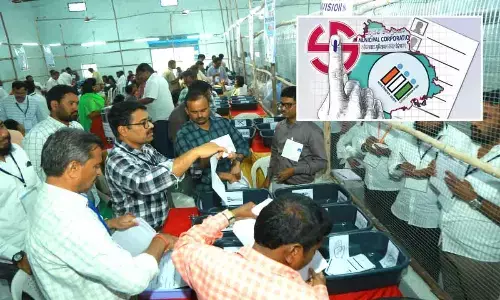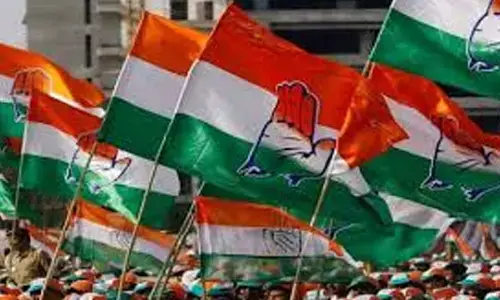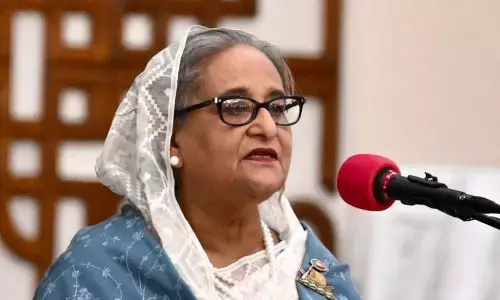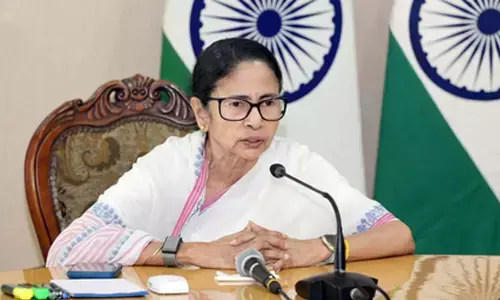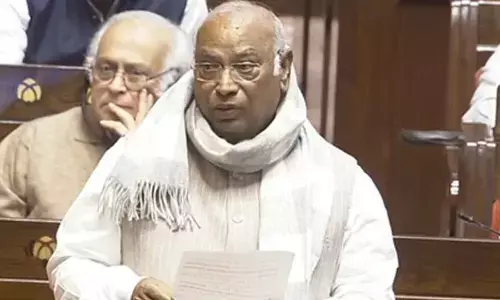New Education Policy adoption will undo RTE Act benefits: SIO
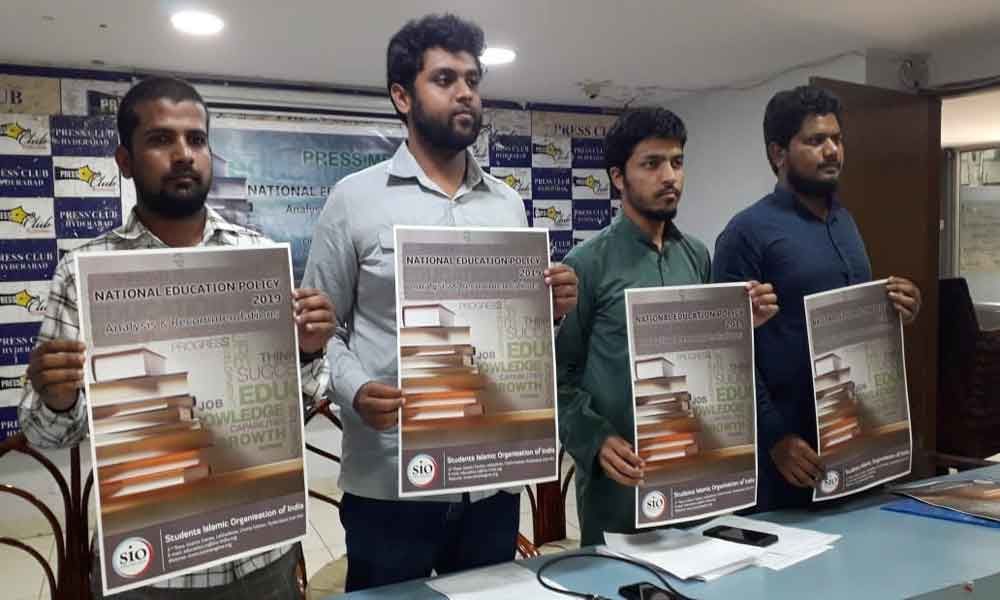
Releasing a report on 'New Education Policy - Analysis and Recommendations' prepared in collaboration with Centre for Educational Research and Training (CERT) here in the City on Monday, the Students Islamic Organisation (SIO) pointed out that Draft NEP 2019, if taken into consideration, will damage the safeguards provided by the RTE Act 2009 to the under privileged sections of the society.
Hyderabad : Releasing a report on 'New Education Policy - Analysis and Recommendations' prepared in collaboration with Centre for Educational Research and Training (CERT) here in the City on Monday, the Students Islamic Organisation (SIO) pointed out that Draft NEP 2019, if taken into consideration, will damage the safeguards provided by the RTE Act 2009 to the under privileged sections of the society.
While releasing the book, State Secretary, SIO Telangana Sohaib Ahmed Khan observed that the proposal of Private - Philanthropic Institutions, even though in good intention, is a step with dangerous consequences. "The policy backup being provided to the private institutions, indirectly, will result in furthering the accessibility, social exclusion of the students. At a time when the country is already reeling under the burden of high cost of education, this decision will further aggravate the situation," he said.
Khan questioned the rationale of the government in delaying the release of NEP draft by almost six months as the draft was signed by the Chairperson and committee members on December 15, 2018 but the draft was released on May 31 ,2019. "It only shows that the government was looking to avoid discussing the draft in Parliament. When the government wishes to avoid discussing why use the phrase 'evolving policy', instead directly should have announced the finalised NEP," he felt.
As per the analysis report, of the 217 eminent persons with whom the committee interacted, all of them belonged to only three metro cities viz., Bengaluru, Mumbai and Delhi. It is unbelievable that the committee didn't find even a single eminent person from the rest of the country. Education is a matter which concerns the metros and the villages alike. Confining the exercise to just three cities and neglecting the rest of the country is not at all acceptable. An inclusive policy must have been drafted on the basis of inputs from every corner of the country, from varied backgrounds and varied schools of thoughts, the speakers said.
"The policy is a guise to further the saffronisation of education by using the multifaceted term 'Rich Indian Heritage'. In the recent past there have been attempts by the government to re-write the history. We fear that the government might extensively use this policy to further the Hindutva and saffronisation agendas. Even though the constitutional value of secularism was included in the previous policies, it has been omitted in the current one, which is sure enough to raise doubts over the government's intentions," Khan added.


